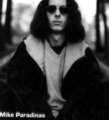27 September 02004
Paying for music in the next decade
The very interesting text of a talk by Andrew Orlowski of The Register projects the problems and opportunities for the music business in the next ten years.
The main problems are that attempts to restrict music distribution through Digital Rights Management are destined to remain very 'leaky'. The opportunities are that record companies will still own the rights to a commodity — if music can be called that — which will always be in demand. Part of the solution is to find a revenue stream for units of consumption that cannot reliably be counted: Orlowski proposes a flat fee model as a solution.
Gratifyingly several of the conclusions are similar to ones I've posted here before. Here are the key points as I see them.
Continue reading "Paying for music in the next decade"19 September 02004
Usability of museum web sites
Paul Marty and Michael Twidale's article A conceptual framework for analyzing the usability flaws of museum web sites is very clearly written and pretty much delivers what its title promises.
It reports evaluations of 36 museum web sites (I'm guessing that most, if not all, were for US museums), on the basis of which usability issues common to the museums sector are identified. The evaluation approach is based in the sound principles of user scenarios, though the authors implicitly concede that their application of it might be termed 'quick and dirty'. Whether or not you want to pick holes in the methodology, some of the results are certainly interesting, and at least plausible, not to say provocative.
Continue reading "Usability of museum web sites"18 September 02004
This is not a music museum
Next week there's a seminar to consult on proposals for the Manchester District Music Archive.
Now I like a cheeky acronym, but how popular are they going to be when staid grown-ups who control grant funds imagine teenagers googling for MDMA? Very Madchester.
No-one (not even the press) has mentioned comparisons with Sheffield's National Centre for Popular Music, but I will.
Continue reading "This is not a music museum"Me and Mr Mu

 I went to the Planet Mu album launch gig last night — courtesy of a Mixing It competition I won — and someone asked me if I was Mike Paradinas (a.k.a. µ-Ziq, and founder of Planet Mu Records). Hmmm. Well it's better than being compared to Hugh F'ing-Whittingstall.
I went to the Planet Mu album launch gig last night — courtesy of a Mixing It competition I won — and someone asked me if I was Mike Paradinas (a.k.a. µ-Ziq, and founder of Planet Mu Records). Hmmm. Well it's better than being compared to Hugh F'ing-Whittingstall.
17 September 02004
Handy ways to listen to online radio
Imagine a service where you could select your favourite radio programming from around the world, have it recorded for you, and then provided in a format you can load onto a portable player for you to listen to when you want. Wouldn't that guarantee more fresh and exciting listening than you get even with 10,000 pre-selected songs in your pocket? That is the direction that the AudioFeast service is heading.
You can take a 15-day free trial of the service — as long as you have player that runs Windows Media Player (i.e. not an iPod) — and then it costs $49.95 a year. I'm not sure if the service works outside the US (as a Mac user, I can't test it).
In a complementary way to the Bug — radio you can pause, rewind and store — AudioFeast is a step towards anytime, anyplace, anywhere martini media.
Continue reading "Handy ways to listen to online radio"16 September 02004
Enforced licensing of BBC radio archive
There's a new spin on access to the BBC's archive in this article in today's Guardian. The regulator Ofcom is proposing that the BBC could be forced to share its radio archive with the commercial world. The idea is that this would make digital radio more attractive and thus drive take-up by listeners.
In his speech yesterday, Ofcom's Chief Executive says: "My question is… this: would non-discriminatory, non-exclusive access — for a fair payment — to the BBC sound archive allow commercial services to enhance their offering to the listening public; and, crucially, do so without damaging the BBC's ability and commitment to offer a strong digital radio service proposition?"
At the moment, access to this archive is a unique selling point of digital stations like BBC 6 Music (see my posting on their use of the archive) and BBC 7. Ofcom's proposal must be seen as a vote of confidence in the value of what 6 Music is doing, even if it could be seen as threatening their pre-eminent position. It could also, indirectly, accelerate the timescale for offering the kind of service I'd like to develop.
11 September 02004
The BBC's digital direction
Based on interviews in the last fortnight with the BBC's Director General (Mark Thompson), Chief Technology Officer (John Varney), and Director of New Media & Technology (Ashley Highfield), you might hope to be able to discern, by process of triangulation, a clear corporate position and direction. But what you get is a much more postmodern mix of perspectives that only rarely hint at connections.
Given the scale and complexity of the issues, combined with the uncertain organisational context with the impending renewal of the Charter, you can forgive the interviewees sounding a bit tentative in some areas. Here's a summary of the points I found interesting.
Continue reading "The BBC's digital direction"7 September 02004
The ingredients of online radio
Here's an article about MSN radio in the US, which I found interesting because it presses my buttons on both online radio and new 'gatekeepers' for discovering music. Microsoft is producing online stations that mimic local radio stations by adopting their playlists, but without DJs, traffic news, weather and commercials. The coup de grace is that they are — according to the article — using the local stations' call letters and slogans to promote their clones.
Continue reading "The ingredients of online radio"5 September 02004
Cues for learning about and discovering new music
Imagine someone who's interested in jazz and has heard a little bit about Miles Davis's reputation. A bit of web searching may give you an overview of Miles' extensive career, such as this brief overview or this more extensive review. But if you go to Amazon.co.uk and search on "Miles Davis" you get 872 results. The iTunes Music Store (in UK) has a Miles Davis selection comprising 863 songs from among 62 albums, with a strong emphasis on selections from posthumous collections rather than the original albums.
There's a meticulously researched article by Wayne Bremser that highlights one-by-one the differences between the contextual information that is available about albums on iTunes compared with the original vinyl releases.
Continue reading "Cues for learning about and discovering new music"
Subscribe to my RSS feed, which covers this blog, my book blog, and further commentary on other web resources (more feeds below)
Usability of museum web sites
This is not a music museum
Me and Mr Mu
Handy ways to listen to online radio
Enforced licensing of BBC radio archive
The BBC's digital direction
The ingredients of online radio
Cues for learning about and discovering new music
Cinema (24)
Cultural Calendar (86)
Curatorial (66)
E-learning (102)
Events (35)
Future of Music (95)
Human-Computer Interaction (62)
Ideas and Essays (37)
Long Now (18)
Miscellany (44)
Music and Multimedia (157)
Playlists (27)
Podcasting (12)
Politics (12)
Radio (48)
Reviews (58)
Social Software (60)
Teaching (23)
Alternatively, see the Date-based Archives
Recommended: RSS feed that combines items on this site, my book blog, and commentary on other web resources
RSS feed for this site only
RSS feed for my book, Net, Blogs and Rock'n'Roll
RSS feed for shared bookmarks
My latest bookmarks (click 'read more' for commentary):
My archived bookmarks (02004-02008)
On most social sites I am either 'davidjennings' or 'djalchemi', for example: Flickr, Last.fm, Ma.gnolia and so on…
Lateral Action — managing creativity
Herd — social cognition
Seb Schmoller's e-learning mailings
Viridian Design Movement
Tom Phillips — artist
Long Now blog — resources for long-term thinking
Longplayer live stream — 1,000-year composition

The contents of this site are licensed under a Creative Commons Licence except where otherwise notified.
Hosted by Paul Makepeace
W3C Standards
Check whether this page is valid XHTML 1.0
Check whether the CSS (style sheet) is valid

